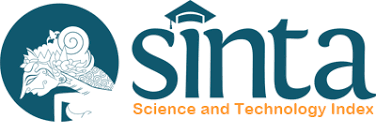JURIDICAL REVIEW REGARDING THE REVERSEMENT OF THE BURDEN OF PROOF TOWARDS THE CRIME OF CORRUPTION IN THE INDONESIAN CRIMINAL LAW SYSTEM
Keywords:
Reversal of the burden of proof, corruption, state losses.Abstract
Corruption in Indonesia has reached its lowest point. The perpetrators are not only state administrators from the central to the regional levels. If seen from the number of cases that have entered the courts and have been decided by the courts, the perpetrators of non-criminal corruption are increasing. State losses due to corruption reach trillions of rupiah. This study aims to determine how far the regulation and application of reversing the burden of proof of corruption cases in the criminal law system in Indonesia. This study uses a descriptive analysis method with a normative juridical approach. The reverse proof system, in principle, makes it easier for the state to pursue assets that already belong to individuals. The state, through the prosecutor, does not need to prove the existence of assets that indicate corruption, it is the defendant himself who does the verification. This system of reverse proof has weaknesses, because it takes a long time to provide opportunities for the defendant and his legal advisers to prove the origin of the assets that are the subject of the matter, and cannot be implemented in all complaint offenses. Reverse proof is only on corruption offenses which are indicated to be detrimental to the country's finances or economy. Corruption crimes in Indonesia are still happening today, solving corruption crimes by reversing the burden of proof is a simpler way for prosecutors to file charges, because it is the defendants who have to prove the origin of the intended property themselves. However, its implementation has not been effective, because the burden reversal system has not become a habitual way of settling corruption cases, as well as the existence of the legality principle of Article 1 (1) of the Criminal Code, which is still debatable.
References
Adami Chazawi, Pelajaran Hukum Pidana Bagian 2. Jakarta: PT Raja Grafindo. 2008.
Anshoruddin, Hukum Pembuktian Menurut Hukum Acara Islam Dan Hukum Positif, Yogyakarta: Pustaka Pelajar. 2004
Chairul Huda, Dari Tiada Pidana Tanpa Kesalahan menuju kepada Tiada Pertanggungjawaban Pidana Tanpa Kesalahan. Tinjauan Kritis Terhadap Teori Pemisahan Tindak Pidana dan Pertanggungjawaban Pidana. Jakarta: Pranada Media. 2006
Dani Krisnawati, Eddy O.S. Hiariej, Marcus Priyo Gunarto, Sigid Riyanto, Supriyadi. Bunga Rampai Hukum Pidana Khusus. Cetakan I, Jakarta: Pena Pundi Aksara. 2006
Firman Wijaya, Peradilan Korupsi Teori dan Praktik. Cetakan I. Jakarta: Penaku Bekerja sama dengan Maharini Press. 2008.
Hari Sasangka dan Lily Rosita, Hukum Pembuktian dalam Perkara Pidana. Bandung: Mandar Maju. 2003
Indriyanto Seno Adji. Korupsi dan Penegakan Hukum. Jakarta: Diadit Media. 2009
Lilik Mulyadi. Asas Pembalikan Beban Pembuktian terhadap Tindak Pidana Korupsi dalam Sistem Hukum Pidana Indonesia. Varia Peradilan No. 264 November. 2007
Mahfud M.D. Membangun Politik Menegakkan Konstitusi. Jakarta: Rajawali Pers. 2010
Satjipto Raharjo. Ilmu Hukum. Bandung: Citra Aditya Bakti. 2000
Tjandra Sridjaja Pradjonggo. Sifat Melawan Hukum Tindak Pidana Korupsi. Jakarta: Asa Mandiri. 2010
Yahya Harahap M. Pembahasan Permasalahan dan Penerapan KUHAP: Pemeriksaan Sidang Pengadilan, Banding, Kasasi, dan Peninjauan Kembali. Jakarta: Sinar Grafika. Edisi Kedua. 2005















